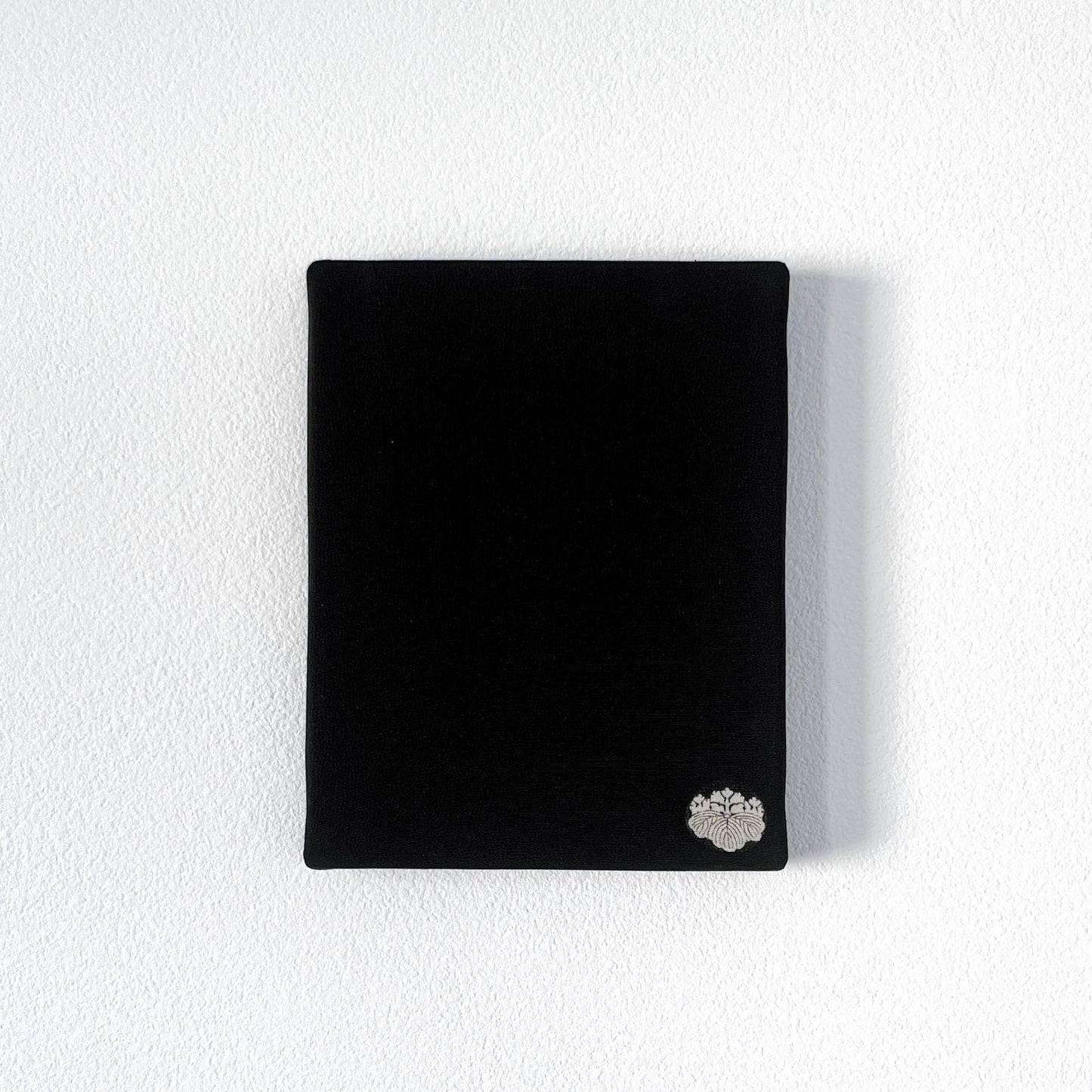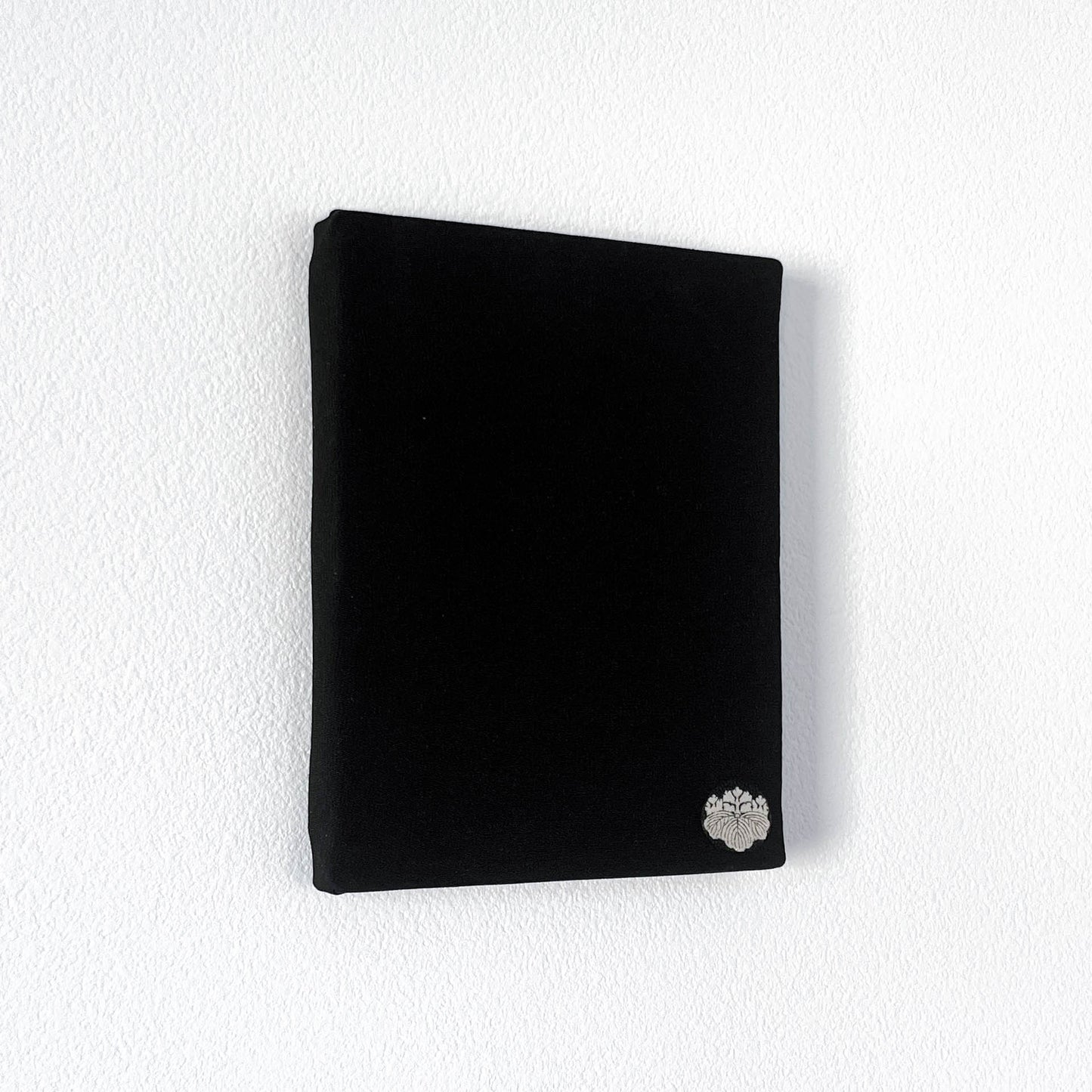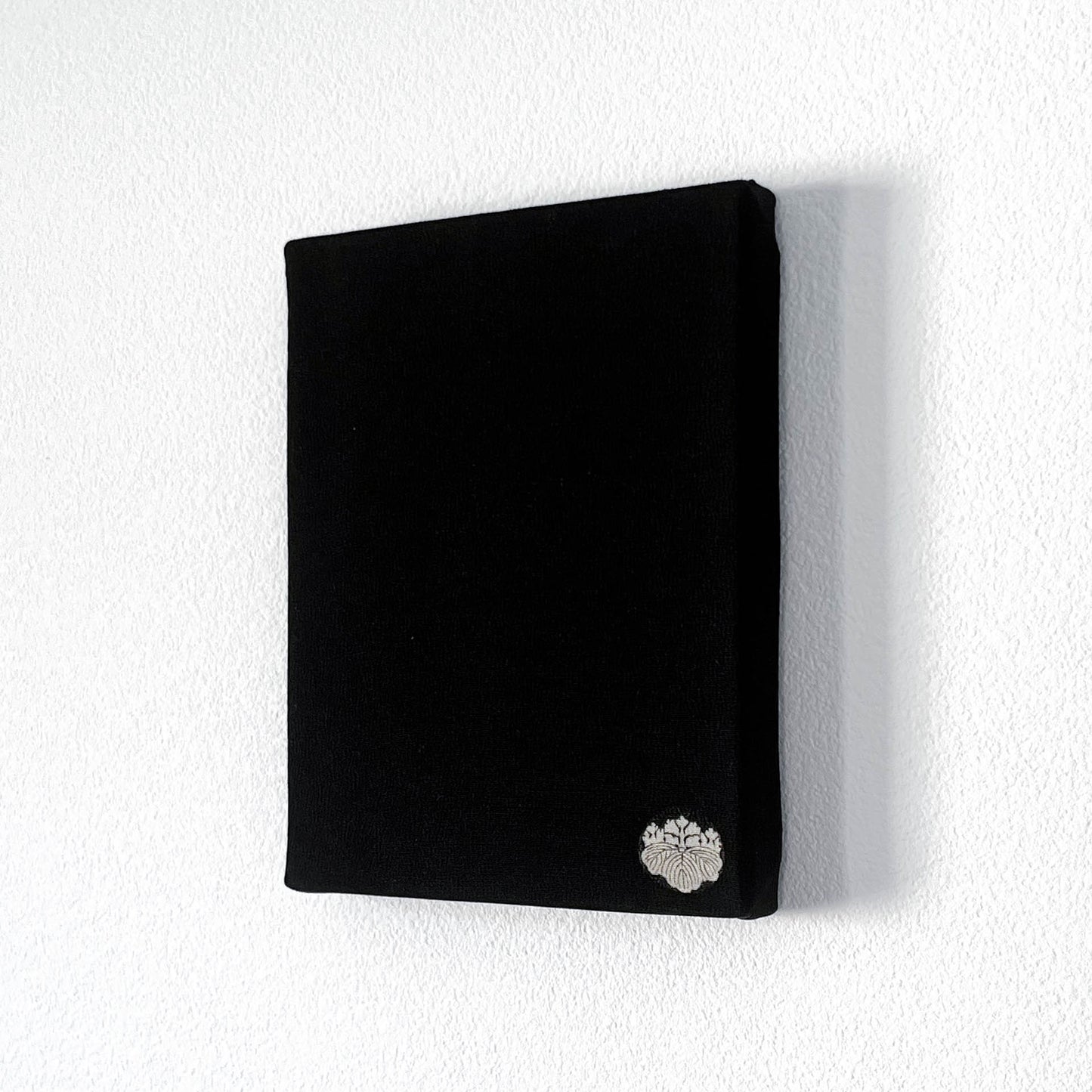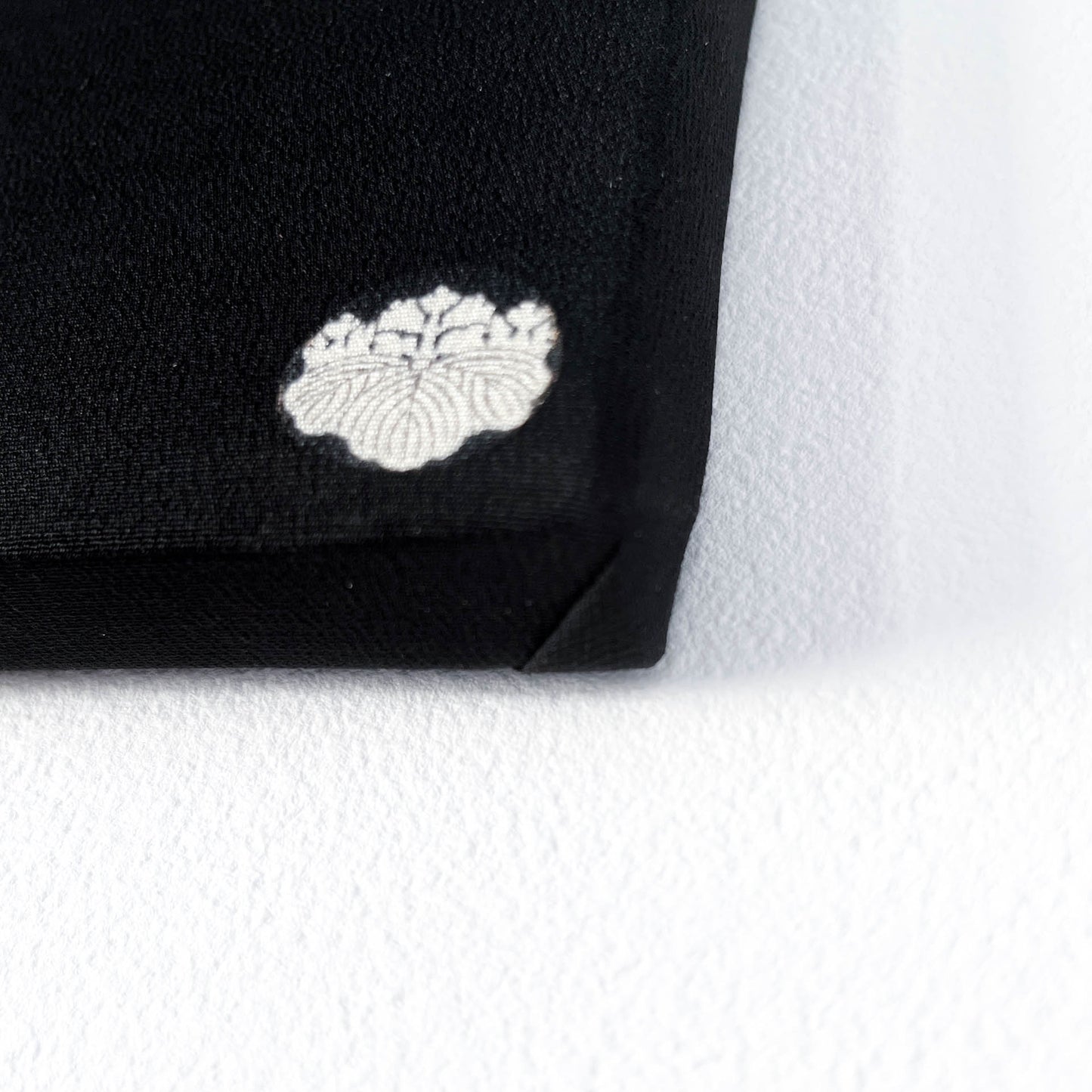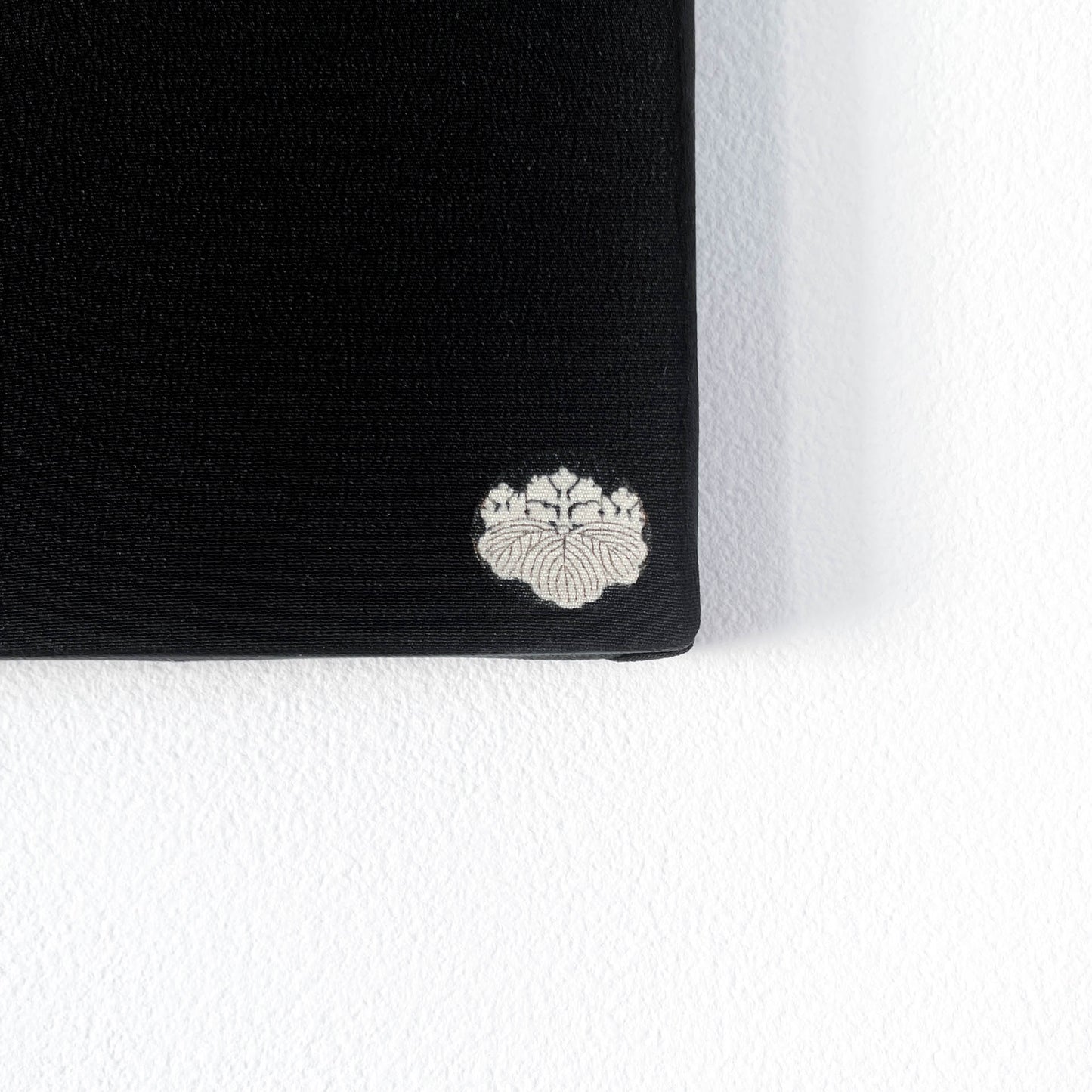Samurai Family Crest ~Prosperity~
Samurai Family Crest ~Prosperity~
无法加载取货服务可用情况
Size
about 14cm x about 18cm x about 2cm
Materials
wooden frame, cotton linen canvas (under-layer), pure silk (outside-layer)
About this canvas
The Paulownia crest on this black kimono represents one of the most prestigious family crests in Japan.
Period/Story
This small canvas was repurposed from a Kuro-tome-sode kimono dating back to the late Showa period, around the 1970s.
Explanation and meaning of pattern and colors
The contrast between the deep black background and the white-dyed paulownia crest is truly stunning. This profound black hue, which absorbs light, is typically reserved for the most esteemed ceremonial garments.
The paulownia pattern holds significant cultural meaning in Japan, representing "nobility." Originally introduced from China, it was believed to be a tree inhabited by the Phoenix, a symbol of good fortune, and was initially designated exclusively for the Imperial Family's use.
Over time, the Emperor extended the privilege to his closest associates as a symbol of his authority, leading to the creation and widespread adoption of family crests featuring paulownia among the samurai class.
In the past, when a girl was born, a paulownia seedling would be planted in the family's garden, and when the girl came of age, a chest of drawers would be crafted from the paulownia tree for her as a bride-to-be. Paulownia trees are known for growing tall and straight, and the name "paulownia" is associated with the wish that the child would grow as strong and healthy as the tree itself.
Description of fabric characteristics
The Kuro-tome-sode, the type of kimono from which this canvas was crafted, is the most prestigious formal attire among kimonos worn by married women. It is characterized by its black base color with five crests. The fabric used is typically crepe without a ground pattern, and only the lower part of the kimono features a pattern.
There are several techniques for dyeing kimonos in black, but the most commonly used method, especially for Kuro-tome-sode, is known as Kuro-hiki-zome dyeing (黒引染). This technique involves under-dyeing the fabric in crimson or indigo before applying the black dye, resulting in a richer and glossier black color. Additionally, there is a technique, now practiced only in a few artisan communities, that uses vegetable dye pigments to achieve a matte black finish.
Decoration Advice
The canvas can be displayed on a table, wall, etc. You will need tacks or nails to hang it on the wall. Because it is light, you can hang it with two ordinary thumbtacks. You can also lean it against an easel. Perfect for redecorating your room, as a housewarming gift, as a present, or as a souvenir for your loved ones! The product will be carefully wrapped and sent, so it can be used as a gift on the go.
Precaution
All the works are made from real kimonos, antiques and vintages. For this reason, the fabric may have traces of long-term use and minor fabric damages. - In case there are any scratches or stains, we always add a photo of the area on the item page, so please check before purchasing. Regarding precaution, cancellation and refund policy, please refer to the refund policy in the footer section of the site for information.

